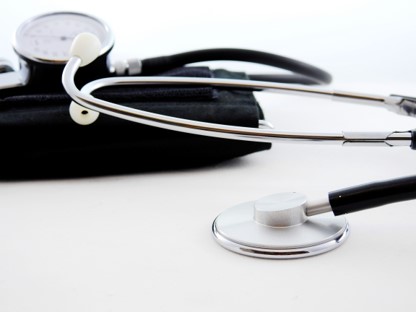We have been very excited to launch our new Level 3 Applied Diploma in Medical Science course in September 2020. Unfortunately this does mean that, unlike our other subjects, we can’t bring you top tips from our previous students, though our new students are enjoying their first weeks of the new course.
Instead, have a look through these tabs to find out a bit more about the course and how you will be assessed. We know that it will be an excellent course, especially if you are planning to go on to health care related careers in the future.
There are 6 units that make up the Diploma qualification:
Each unit has a clear medical science purpose which focuses the learning of scientific knowledge, understanding and skills in to a meaningful context.

This unit develops knowledge and understanding of human anatomy and physiology. You will develop an understanding of the function of organ systems and some problems that can occur in these systems. The unit will enable you to understand the normal functioning of the body at a cellular and physiological system level. You will learn how these systems react in different situations, and how factors such as lifestyle and diseases can make them go wrong.
This unit develops knowledge and understanding about the physiological measurements that can be made to assess the function of major body systems. It relates anatomy and physiology to physiological measurement test results, through an understanding of the principles of the measurement techniques. In this unit you will perform tests which will accurately measure a range of physiological functions. You will be able to interpret the results of these tests and link them to possible physiological disorders.
This unit develops knowledge and understanding of planning, conducting and reporting of research in medical sciences using a range of methodologies and techniques. You will develop the necessary knowledge and skills to carry out research in order to obtain meaningful information. It also seeks to promote an understanding of the processes involved in drawing meaningful conclusions from research data. You will conduct your own research, process the data you have collected and make evidence-based conclusions.
This unit develops knowledge and understanding about the science of medicines and how they work through their interactions with body systems. It also introduces cancer, its relationship to genetics, and the range of therapeutic treatments available. The unit will enable you to provide information to a range of audiences on how medicines work, to bring about effective treatment of diseases and disorders.
This unit develops knowledge and understanding about the clinical laboratory techniques that can be used to assess body functions. It relates knowledge and understanding of human physiology and biochemistry to clinical measurement test results through an understanding of the principles of the measurement techniques. The unit will enable you to perform tests which will accurately measure a range of biochemical and microbiological parameters. You will interpret the results of your tests, and other test results, and link these results to possible physiological disorders.
This unit is the overall synoptic unit for the Diploma qualification. It provides the opportunity to demonstrate your understanding of the connections between the other five units of this Medical Science qualification. You will apply skills, techniques, knowledge, understanding and concepts from across the qualification content in order to complete the required assessment.
The assessment involves medical case studies, which will require you to analyse the information provided and develop a thorough assessment of the condition based on the knowledge and understanding gained from the other units of this qualification.
In the Medical Science course, you have a mix of exams and non-examined assessment (coursework).
Some of the coursework is marked in school and some of it is sent to an external examiner to mark. The two exams are marked externally.
Unit 1 is an exam which makes up 25 % of the diploma qualification.
Unit 2 is a non-exam assessment task which makes up 12.5% of the diploma qualification. This is marked by your teacher.
Unit 3 is a non-exam assessment task which makes up 12.5% of the diploma qualification. This is marked by your teacher.
Unit 4 is a non-exam assessment task which makes up 25% of the diploma qualification. This is marked by your teacher.
Unit 5 is a non-exam assessment task which makes up 12.5% of the diploma qualification. This is marked by an external examiner.
Unit 6 is an exam which makes up 12.5 % of the diploma qualification.
This qualification equips you with scientific knowledge and understanding, as well as practical skills that would support progression to a range of job roles within health care. Job roles such as those within the areas of life sciences, i.e. carrying out a range of laboratory and scientific tests to support the diagnosis and treatment of disease, this could include microscopic examination of tissue samples, analysis of blood cells to investigate anaemia or analysis of samples to identify the cause of an infection.
Alternatively, there would also be opportunities to progress to job roles within the physiological sciences, working directly with patients, measuring and evaluating particular organs systems, such as scientists working in neurophysiology recording the electrical activity in the brain.
A significant proportion of career opportunities in this sector are at degree level. When supported by other appropriate qualifications (for example Psychology or Health and Social Care), the Level 3 Applied Diploma in Medical Science will enable progression to higher education to a range of Applied Science programmes, such as biomedical science, life sciences, and physiology.
Recent Comments